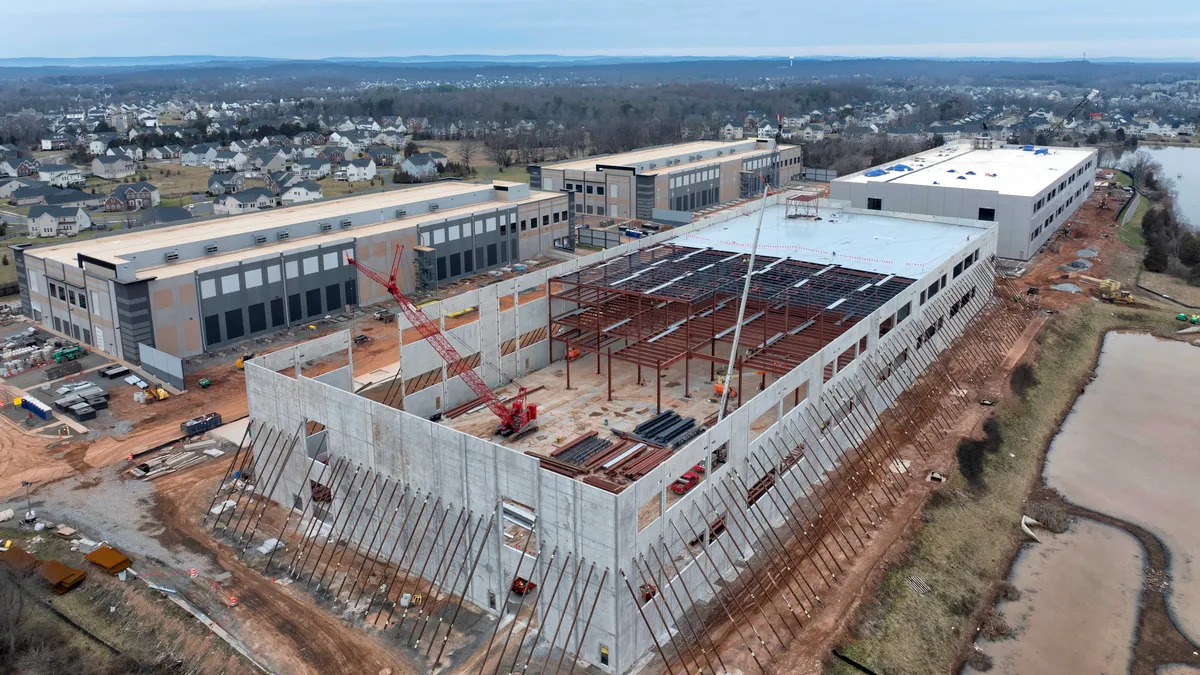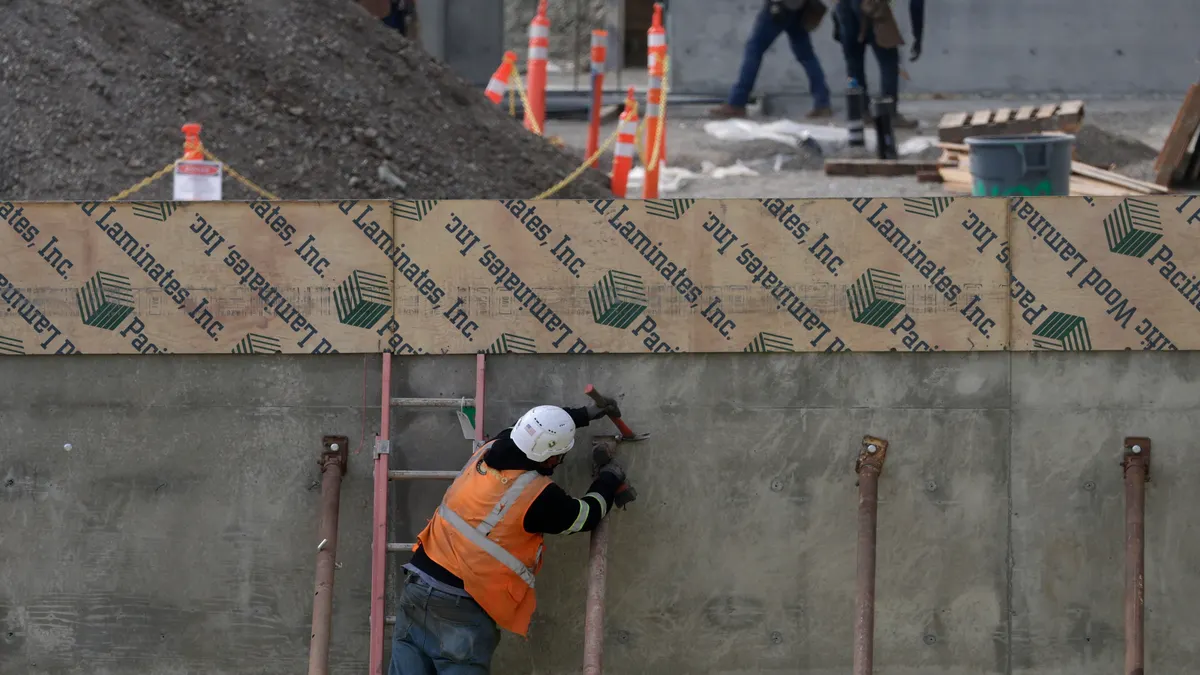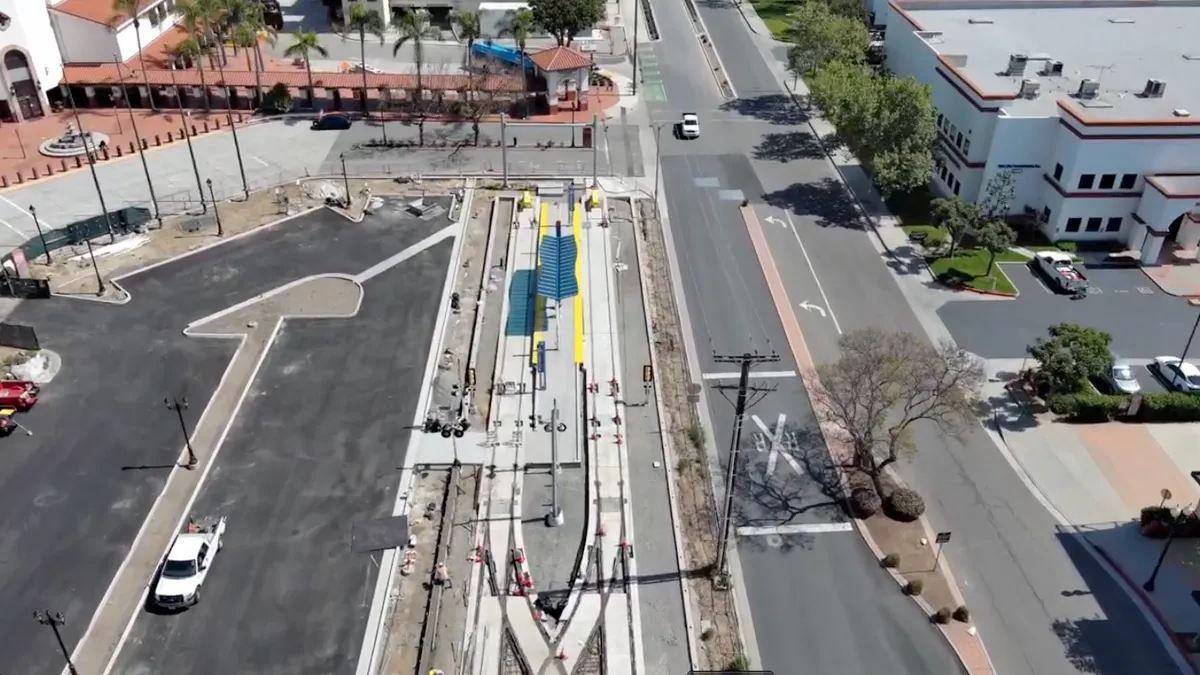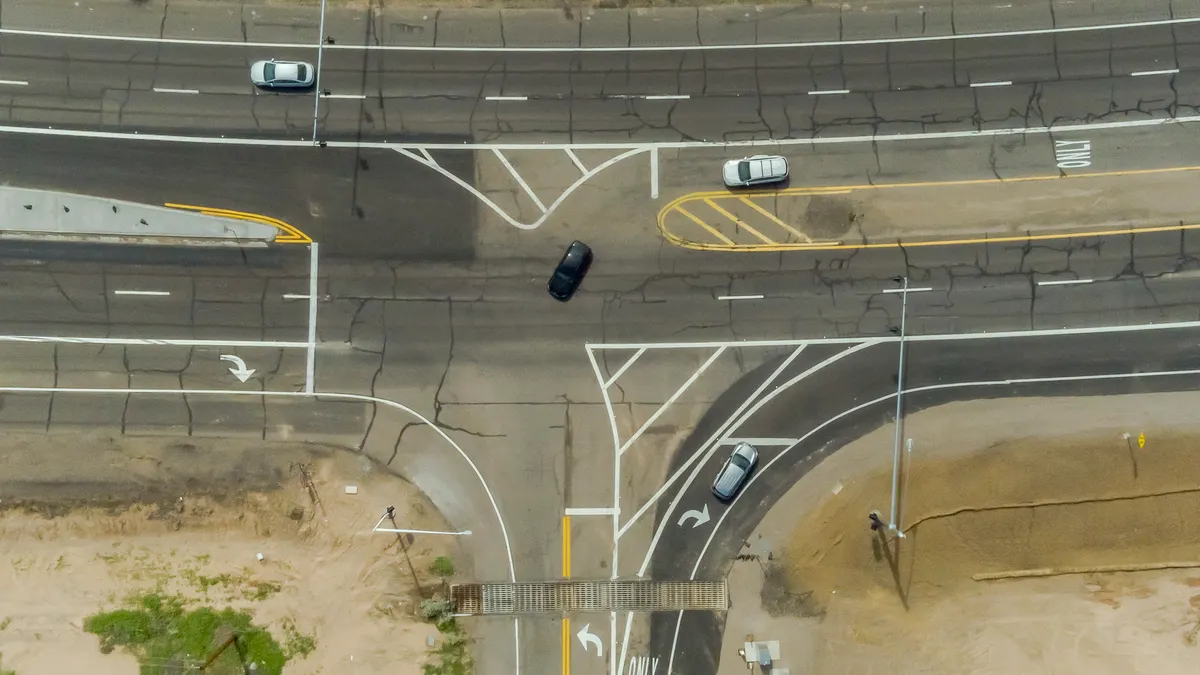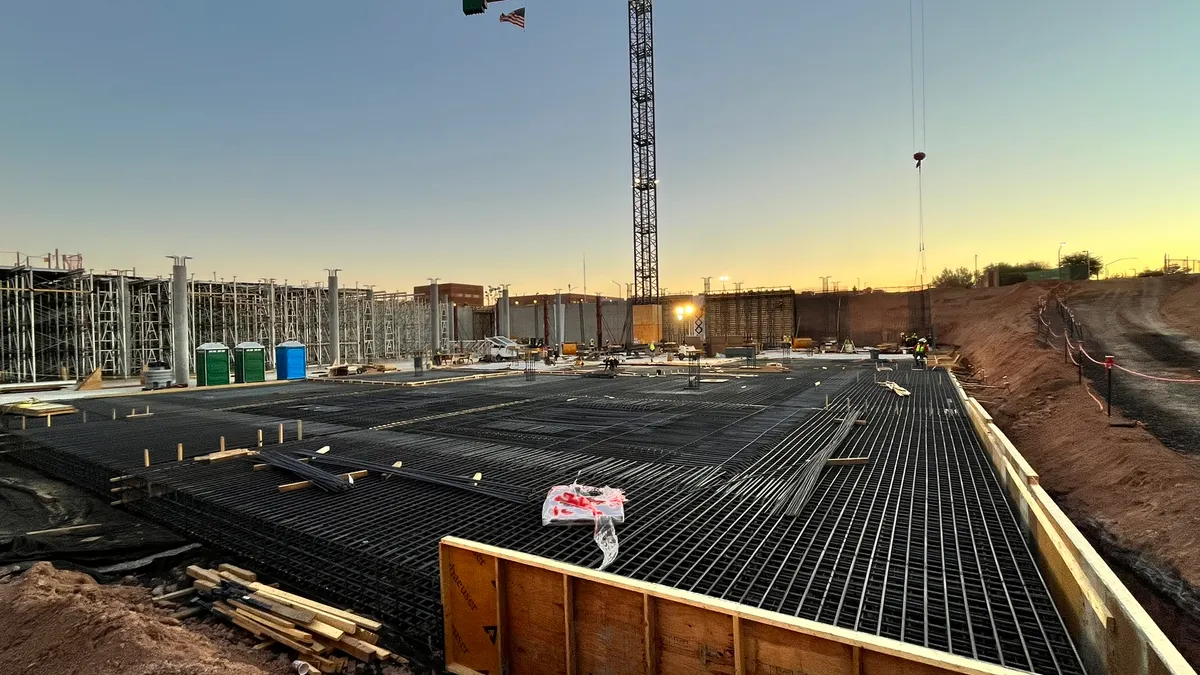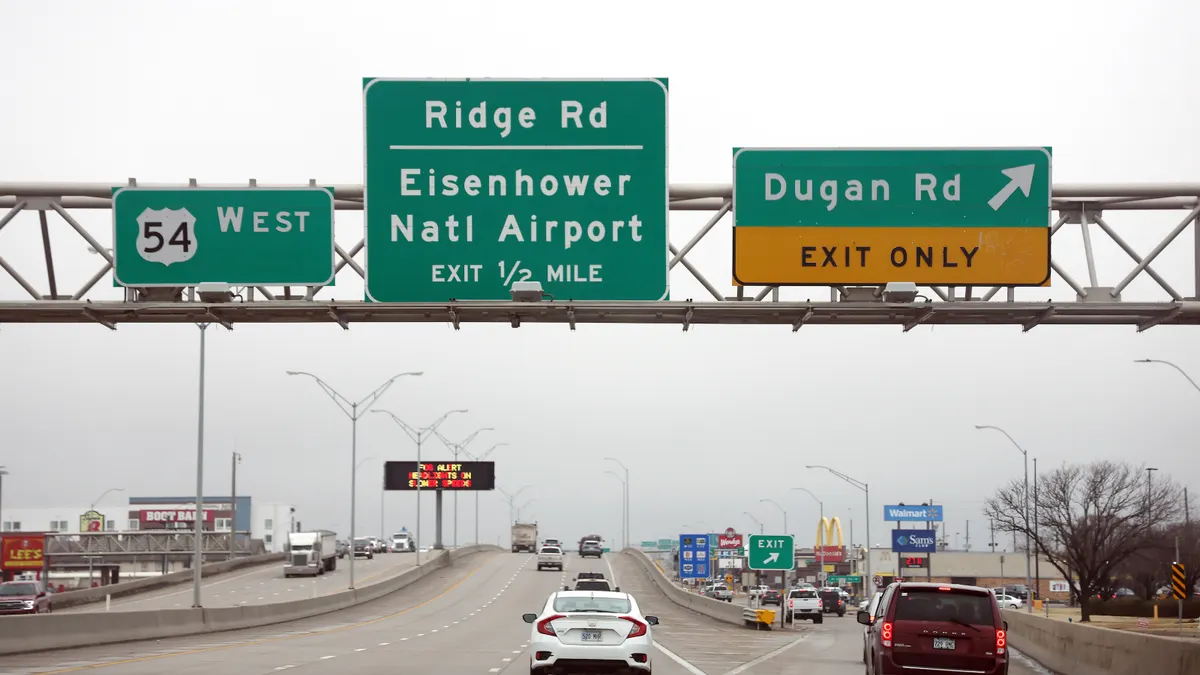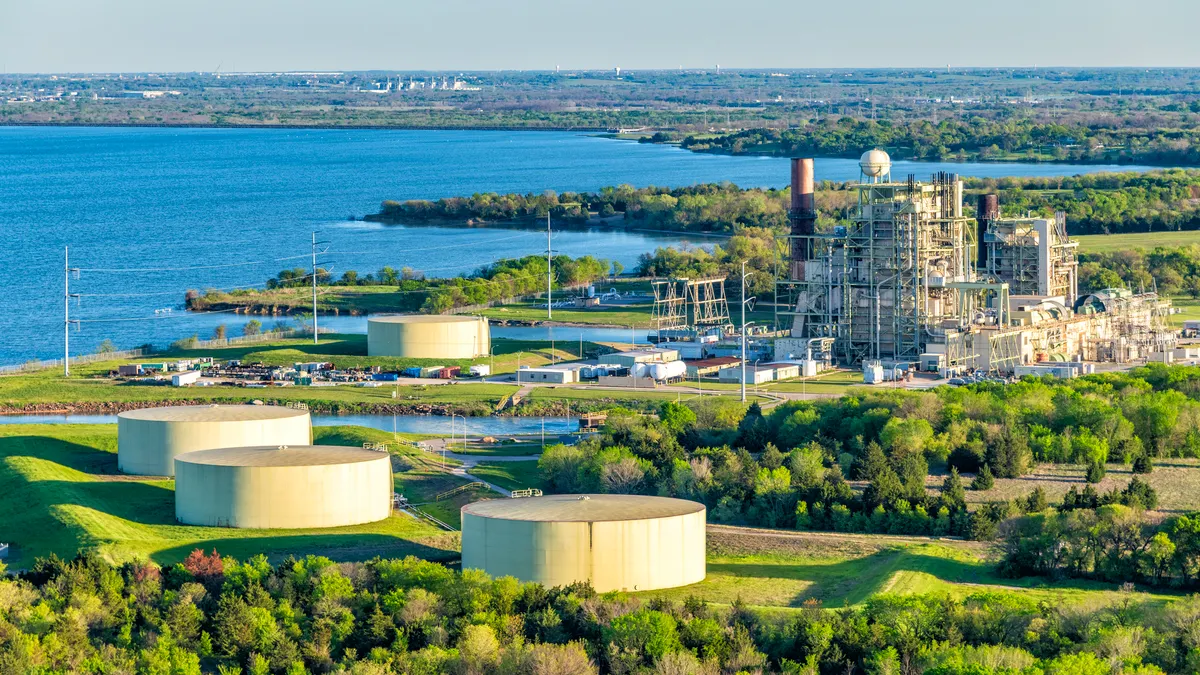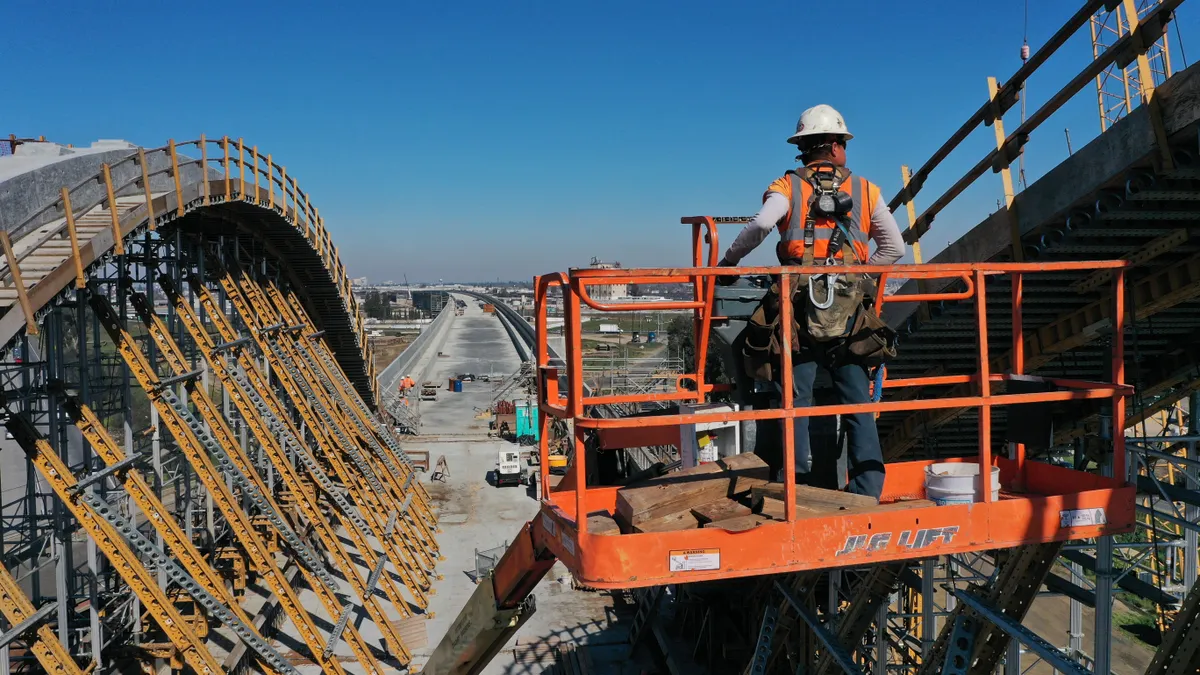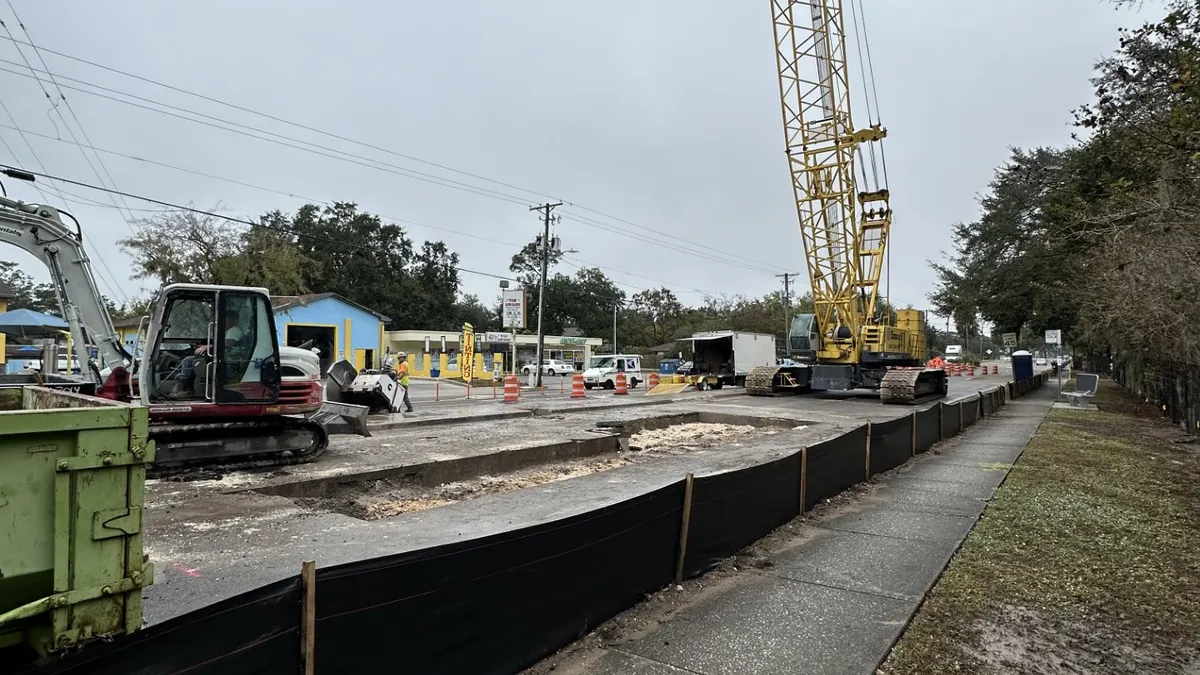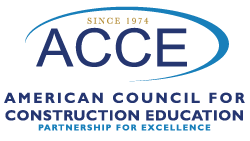After a tumultuous week of debate and controversy, Congress will likely kick the transportation can down the underfunded road a little longer.
The House’s passage of a three-month highway funding stopgap Wednesday puts off the discussion of a more permanent solution until Congress returns from its August recess. Senate leaders have signaled they will approve the House’s three-month extension to avoid shutting down infrastructure projects in progress, and the White House announced President Obama would sign the stopgap measure, despite his preference for a more permanent solution.
The Senate, however, is also set to vote today on a six-year bill that, if passed, will go to conference committee with negotiations from the House when both chambers return in September. Despite calling the Senate's six-year plan a "piece of shit" on Wednesday, Speaker John Boehner told reporters that he is "confident" lawmakers will reach an agreement on a more permanent highway funding solution when they return in the fall.
Impact on construction industry
Construction industry groups have been blunt with their calls on Congress to reach a more permanent funding solution. With uncertainty looming over federal infrastructure projects, construction managers may be less inclined to hire or retain workers.
Many experts say the Senate's $350 billion bill doesn't go far enough, as they would prefer a bigger funding boost and certainty for all six years, but they are tired of the constant stopgap measures. Wednesday's vote marks the 34th short-term funding extension since 2009.
"Our preference would have been for a long-term, fully funded bill. But at least Congress isn't leaving town with no highway funding in place at all," Brian Turmail, senior executive director of public affairs for the Associated General Contractors of America, told Construction Dive. "We are now planning on spending the month of August working hard to educate Congress on the need to get back into town and pass a fully-funded, long-term highway and transit bill as quickly as possible."
Five states — Arkansas, Wyoming, Tennessee, Georgia, and Utah — have postponed or shut down $1.5 billion worth of construction projects because they couldn't rely on federal aid, according to the American Association of State Highway and Transportation Officials.
"Many transportation construction firms will be reluctant to expand their headcount until Washington puts in places a long-term highway and transit funding measure," AGC Chief Economist Ken Simonson said in a release Wednesday.
The Senate’s plan
The Senate has struggled to get its plan through its own chamber due to concerns over attaching funding for the Export-Import Bank and questions regarding the fact it provides for only three years of funding.
Sen. James Inhofe (R-Okla.) who helped craft the legislation, said the process for agreeing to this bill has been a difficult one. "There a lot of members in this body who didn't think they got what they wanted in this bill. I have to tell you, I didn't get what I wanted … and Senator Boxer didn't get what she wanted."
Here's what is included in the Senate's six-year, $350 billion proposal:
Highways and roads
The measure would supply the Highway Trust fund with enough funding for three years with $45 billion worth of spending cuts and revenue bumps within the federal budget. The most significant contribution would come from $16 billion in savings resulting from lowering the dividend rate for large banks paid by the federal government.
Because the transportation fund is supplied mostly from gasoline and diesel taxes, which haven't been sufficient revenue sources, the measure calls on states to create their own fees for users of electric vehicles.
The Senate's bill, which includes efforts involving faster environmental reviews for construction projects, also sets funds aside for major projects. It will direct $1.5 billion in highway aid to "major freight transportation corridors," beginning in fiscal year 2016. That amount will grow to $2.5 billion in 2021.
Transit
The bill doesn't quite meet hopes of the White House and American Public Transportation Association, who wanted to double transit funding. During the measure's first year, annual transit funding will increase by 9% more than current spending. By the sixth year, that figure will reach 25% more than current spending.
The bill includes a 12% increase — $262 million — in fiscal year 2016 to help public transit agencies address necessary repairs for rail systems. The transportation association has expressed its support for the Senate measure, but also said it is concerned with the lack of funding for the last three years.
Railroads and safety
The measure allots Amtrak $1.65 billion each year for the next four years and offers $570 million in annual grants to help improve rail services and reduce the constant congestion in the corridor between Washington and Boston. It also includes two railway safety provisions.
The Senate's bill requires rental car agencies to fix cars subject to safety recalls before allowing customers to rent them. It doesn't, however, include a measure requiring the same standard of used car sellers.
The measure also has a provision doubling — from $35 million to $70 million — the fine amount the government can impose on carmakers who fail to disclose safety defects. That amount fails to meet the $300 million requested by the White House.



